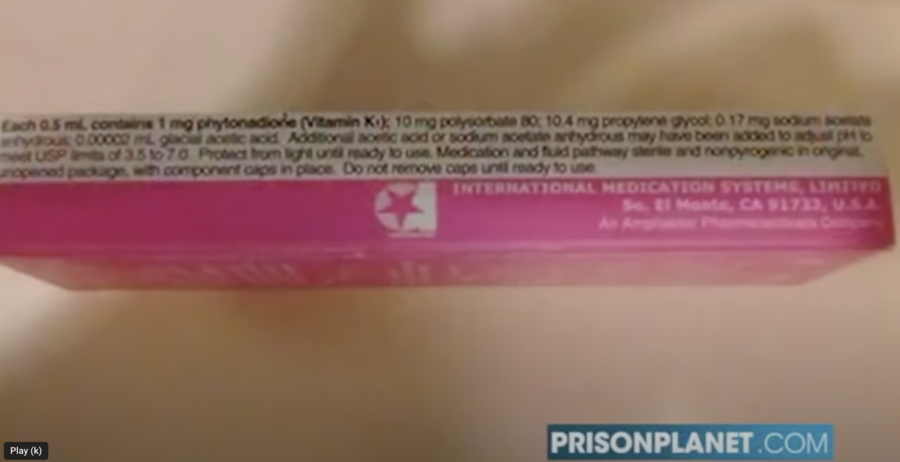
Do vitamin K shots typically given to infants at birth put their lives at risk with excessive and unreasonable exposure to dangerous ingredients? No, that's not true: The claim is misleading about the properties of the additives and omits the life-saving benefits of the injections.
The claim appeared in a reel published to Facebook on May 25, 2023. Its caption stated:
What's in the vitamin k shot they give to newborns........they have poisoning our babies for decades 🥺😞
The video featured a woman who said a nurse sent her labels of what was described as two of the three vitamin K shots for infants available on the market. Based on that, the woman claimed that some of the ingredients were unsafe:
The main active ingredient is polysorbate 80, and that is ... There are strong links to infertility, to autoimmune issues. Polysorbate 80 is banned in a lot of countries, especially in injectables. And that's the main active ingredient in one of the vitamin K solutions. And the other one -- on the vial, it says -- contains no more than 100 milligrams per liter, micrograms per liter, of aluminum.
This is what the reel looked like on Facebook at the time of writing:
(Source: Facebook.com screenshot taken on Fri Aug 25 13:24:11 2023 UTC)
The clip was a fragment of the Alex Jones show uploaded on YouTube on July 12, 2018. In that segment, the host interviewed Brandy Vaughan, a former pharmaceutical representative who turned into an anti-vaccination activist. She died in 2020 of a blood clot.
The claim did not mention the benefits of vitamin K shots and overstated its risks.
The American Academy of Pediatrics recommends intramuscular injections of vitamin K at birth, which has been a standard protocol in the United States since 1961.
The Centers for Disease Control and Prevention website explains that babies are typically born with low levels of vitamin K, which might cause a life-threatening event:
The vitamin K given at birth provides protection against bleeding that could occur because of low levels of this essential vitamin.
The University of Michigan C.S. Mott Children's Hospital elaborates:
Babies in other parts of the world, where there is not universal access to IM vitamin K, do develop vitamin K deficiency bleeding, and many end up with permanent neurologic damage or dead. 2 out of every 100 babies who do not get a vitamin K injection at birth develop vitamin K deficiency bleeding.
Only in 2013, decades after administering the shot had become a common practice, a report co-authored by the representative of the Turkish Ministry of Health described what they thought was "the first case of neonatal anaphylactic shock developing due to intramuscular administration of vitamin K1."
Contrary to the claim, polysorbate 80 is not "the main active ingredient" in the shots -- it's vitamin K.
According to Title 21 of the Code of Federal Regulations published on the Food and Drug Administration website, polysorbate 80 is safe to use in foods if the producer follows the manufacturing rules and does not exceed the recommended amounts. In fact, this ingredient can be found in ice cream, pickles and canned green beans. It is also one of the commonly used ingredients in vaccines; for example, in a shot against bird flu.
The Code specifically says that polysorbate 80 can be used in vitamin solutions, and the concentration of 10 mg shown in the picture seen in the clip on social media is way below the maximum allowed dose that -- according to the Code -- is typically above well above 100 mg:
(Source: YouTube.com screenshot taken on Fri Aug 25 15:37:09 2023 UTC)
According to the aluminum toxicological profile, published and updated by the Agency For Toxic Substances, it is a naturally occurring metal, and people in the United States are daily exposed to some of it due to environmental factors. However, the report points out:
If you are exposed to aluminum, many factors will determine whether you will be harmed. These factors include the dose (how much), the duration (how long), and how you come in contact with it. ... Most aluminum in food, water, and medicines leaves your body quickly in the feces. Much of the small amount of aluminum that does enter the bloodstream will quickly leave your body in the urine.
Misinformation about vitamin K shots for newborns has been persistent on social media since at least 2021.
Other Lead Stories fact checks about vitamins can be found here.


















